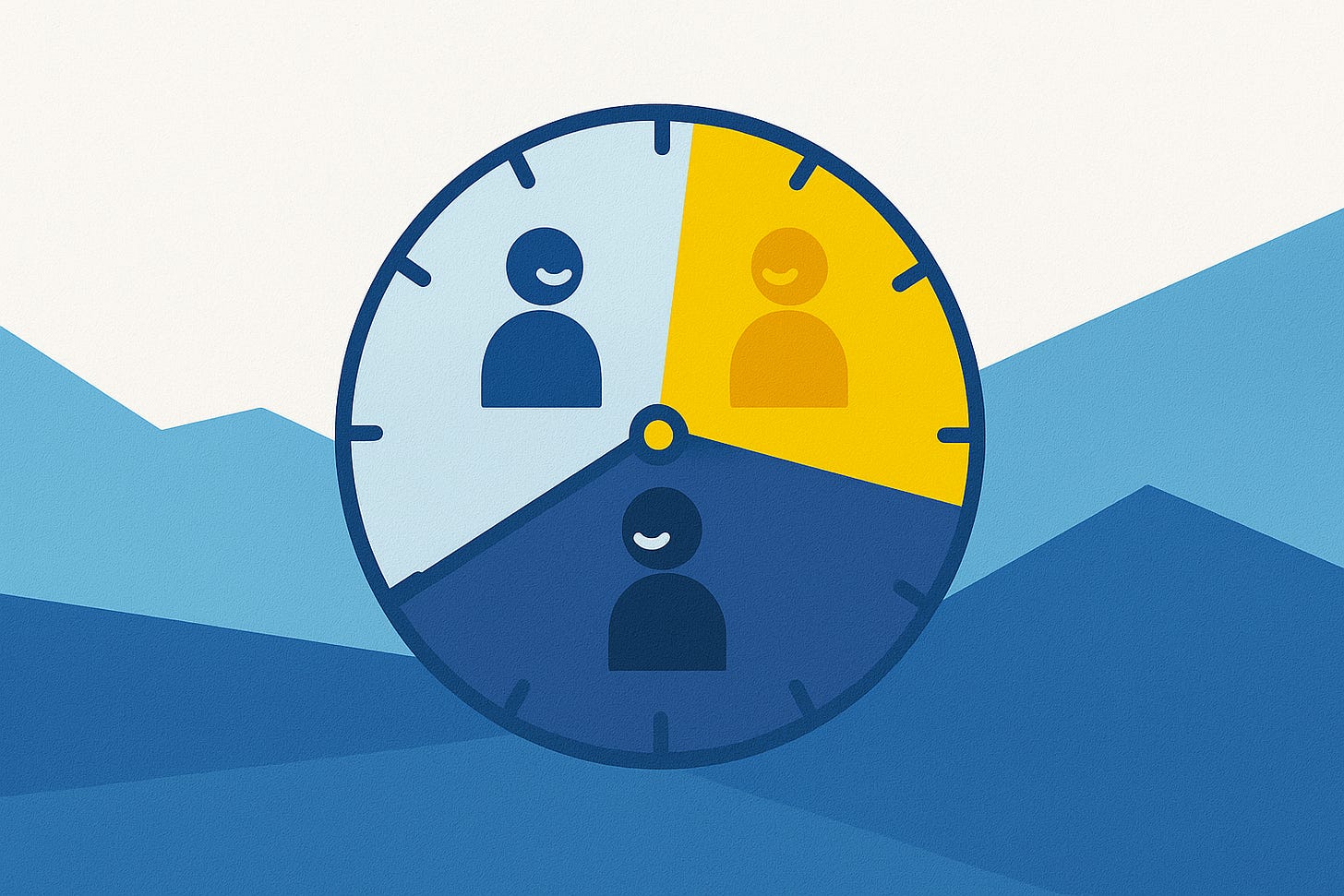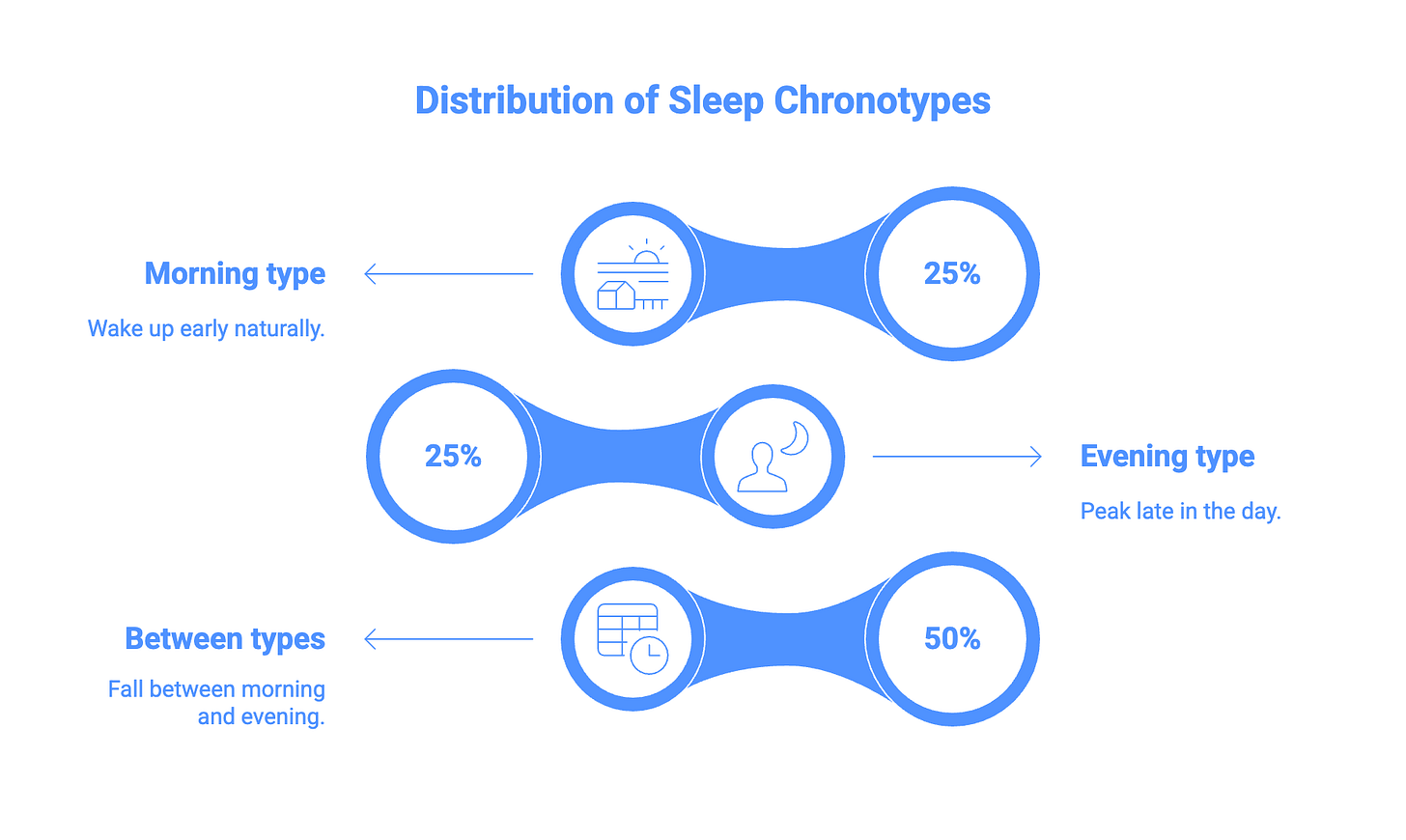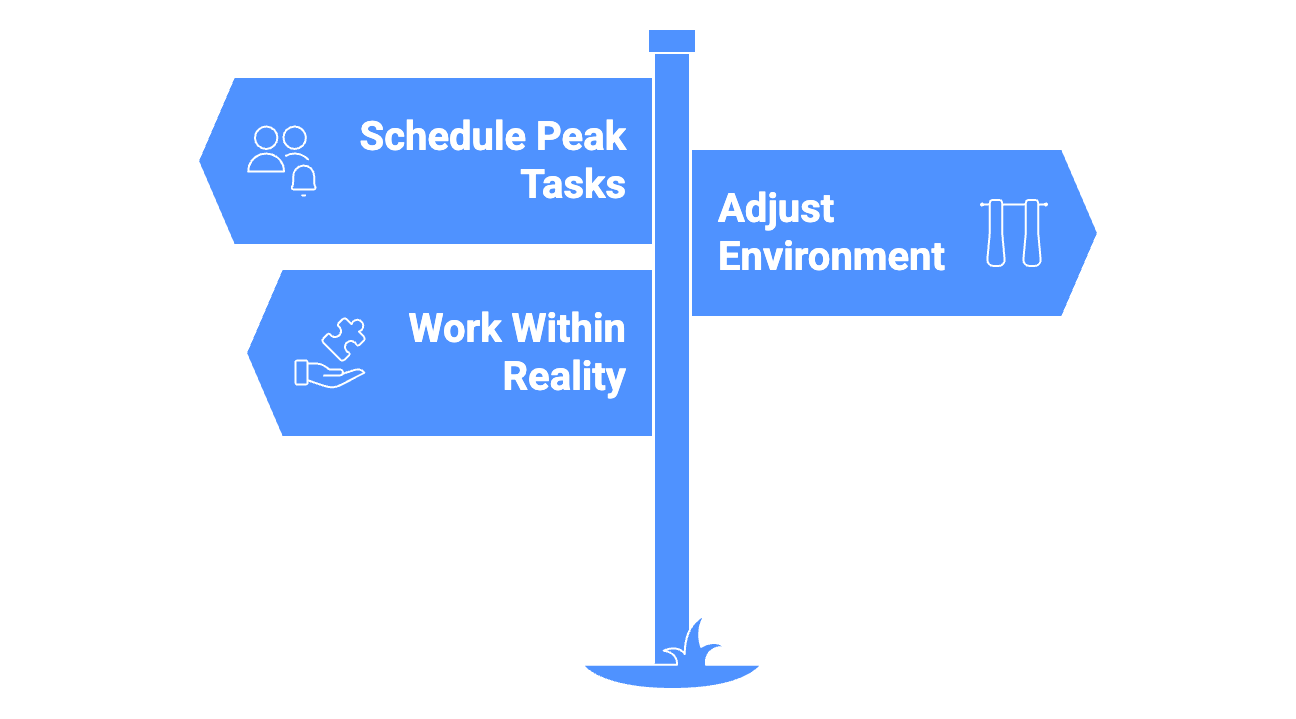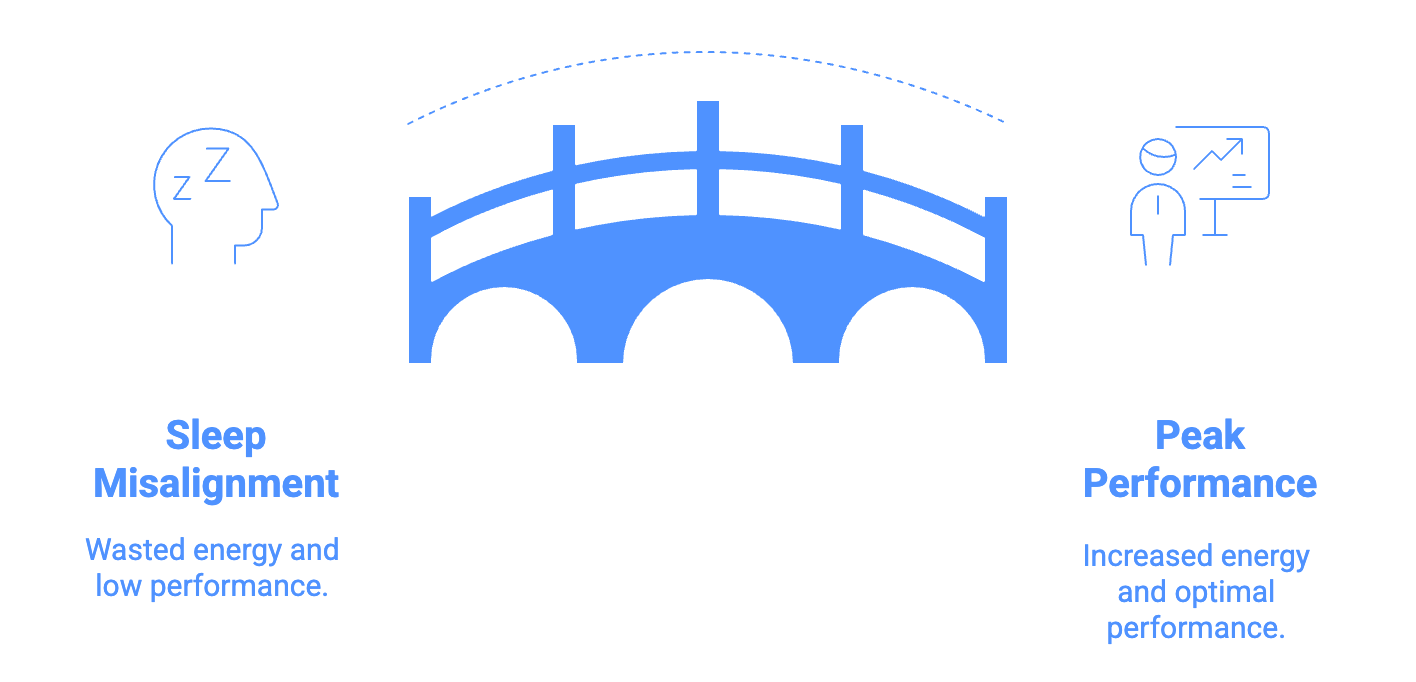From Exhausted Daily to Energized Without Sleeping More
Your brain has a sleep type (and you’ve been fighting it)
Hello Kwik Brain,
In today’s article, we learn how to identify your biological sleep type in under 60 seconds, why forcing the wrong schedule drains your energy, and three immediate changes that align your routine with your brain’s natural rhythm.
Your brain runs on a clock. Not the one on your wall. A biological clock that decides when you think clearly, when mental fog hits, when sleep feels natural.
Most people fight this clock their entire lives. Forcing themselves awake when their brain doesn’t hit stride until noon. Staying up late when every cell screams for sleep at 9 PM.
This misalignment costs you daily.
Brain imaging studies show measurable differences in the circadian systems of morning versus evening types. Not preference. Not discipline. Biology.
The gap between your natural rhythm and forced schedule creates what researchers call “social jetlag.” Studies link this misalignment to decreased cognitive performance, mood problems, and health risks.
You’re not broken. You’re misaligned.
The science in 60 seconds
Humans don’t share one universal sleep pattern. We have distinct biological types called chronotypes.
Your chronotype controls when your brain works best, your natural sleep and wake times, why productivity systems that work for your colleague fail for you.
The Munich Chronotype Questionnaire, validated across thousands of people, proves these patterns exist independent of choice. Correlations of r=0.74-0.76 with objective sleep tracking confirm this isn’t personality. It’s genetics.
Morning types (25% of people) wake early naturally. Evening types (25%) peak late. Most humans (50%) fall somewhere between.
The myth killing you: “Everyone should wake at 5 AM for success.”
Truth: Research shows evening types forcing early schedules perform worse than when following their natural rhythm. You can’t willpower your way out of biology.
Find your type
Answer one question:
On days with no alarm or obligations, when do you naturally wake up?
Morning type
Wake naturally before 7 AM. Feel alert quickly. Peak energy 8 AM to noon. Ready for bed by 9 or 10 PM.
Intermediate type
Wake naturally between 7 and 9 AM. Moderate morning alertness. Peak energy 10 AM to 2 PM. Comfortable bedtime around 11 PM.
Evening type
Wake naturally after 9 AM. Morning fog regardless of sleep amount. Peak energy noon to 6 PM. Natural bedtime after midnight.
The pattern that matters: How different is your weekend sleep from your weekday sleep?
If you wake at 6 AM on work days but 10 AM on weekends, you’re fighting a 4-hour misalignment every week. Your brain experiences this as constant time zone travel. You never adjust. You just oscillate.
Studies show differences greater than two hours between work and free day sleep timing correlate with reduced performance and health risks.
If mornings feel brutal despite adequate sleep, you’re probably an evening type forced into a morning schedule. If you naturally wake early and drag through evenings, you’re a morning type staying up too late.
Trust what your body tells you on free days. That’s your answer.
Optimize around your type
Schedule peak tasks strategically
Morning types: Complex work between 8 AM and noon. Protect mornings fiercely.
Intermediate types: Difficult tasks 10 AM to 2 PM. Expect an energy dip around 2 PM.
Evening types: Deep work noon to 6 PM. Avoid important decisions before 10 AM. Mornings for routine work only.
Adjust your environment
Morning types benefit from sunlight immediately upon waking. Dim lights by 7 PM.
Evening types need blackout curtains. Bright light between 10 AM and 2 PM helps anchor your rhythm without forcing an unnatural early wake.
Work within reality
Can’t change your work schedule? Minimize the damage.
Keep free-day timing as consistent as possible with work days to reduce social jetlag. Protect your peak hours (whenever they occur) for important work. Delegate low-stakes tasks to off-peak times.
Small adjustments compound. Moving bedtime 15 minutes closer to ideal. Getting morning light. Rescheduling one recurring meeting. These create measurable improvements.
Most people never optimize for their type. They assume everyone operates the same way, then blame themselves when standard advice produces mediocre results.
Take action today
Pick one:
Track your natural wake time for one week. On free days, note when you naturally wake without an alarm. If it’s 2+ hours later than your work wake time, you’re significantly misaligned.
Move your bedtime 15 minutes closer to ideal. If your natural bedtime is midnight but work forces 10 PM, don’t make the full jump. Shift incrementally.
Schedule your most important task during peak hours. Block this time. Most people scatter high-value work throughout the day, guaranteeing some lands during low-energy periods.
Get sunlight within two hours of waking. This anchors your circadian rhythm. Morning types benefit from immediate exposure. Evening types still need light, just not forced at 6 AM.
Your sleep type is biological. Fighting it wastes energy. Working with it unlocks capacity you didn’t know existed.
The difference between struggling through your day and performing at your peak often comes down to one thing: respecting the clock your brain runs on.
Stop forcing. Start aligning.
While I’m passionate about brain performance, I’m not a doctor. Check with your healthcare provider before making significant changes to your sleep schedule, especially if you have existing health conditions.








I appreciate this post soooo much!! I'm an evening type. Attempted the "get up early" trash "influencers" say to do and it backfired awfully. Landed me in a deep depression and took my mojo for nearly a year thinking I wasn't good enough. I've been leaning into my intuition for the past 3 years about myself and I feel 100000% validated with this.